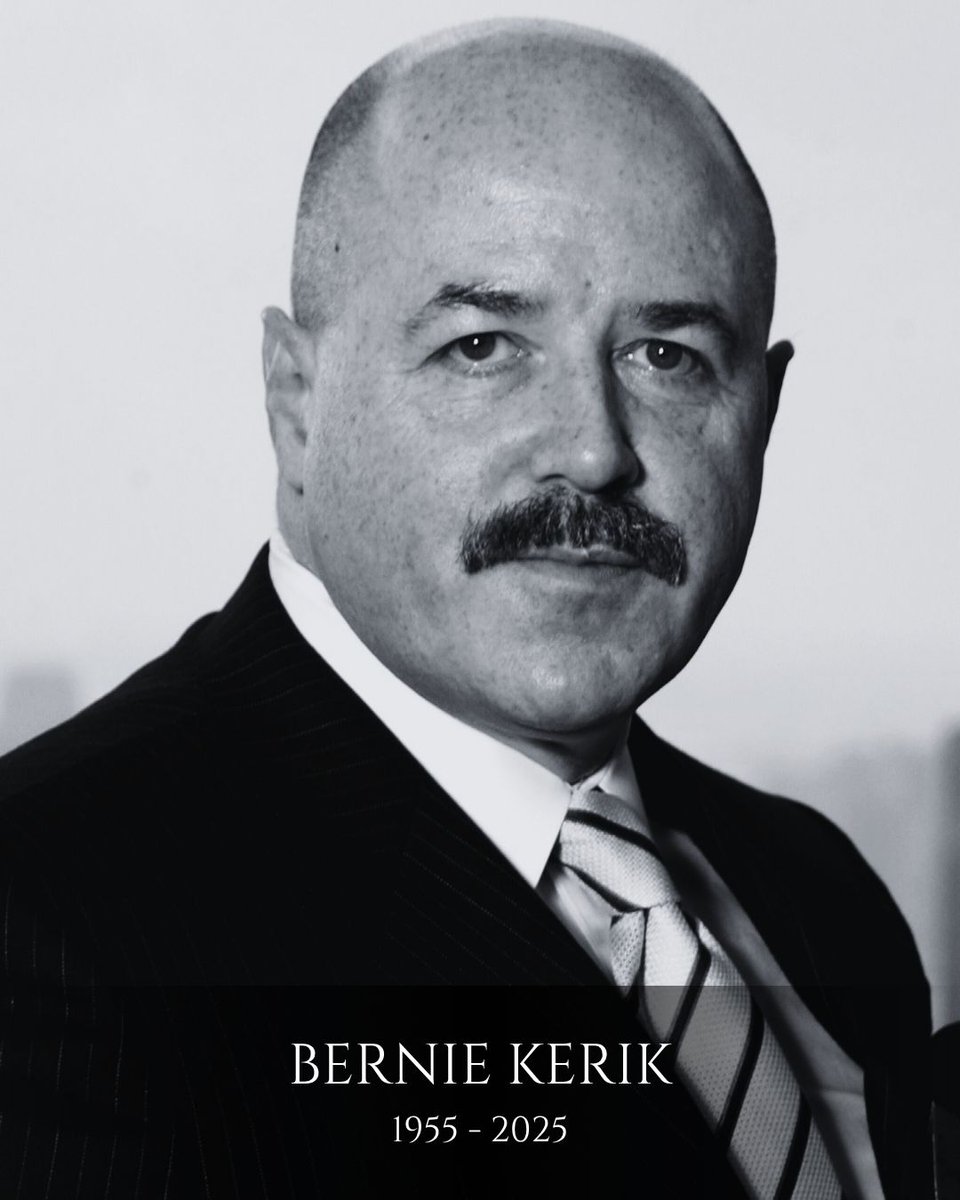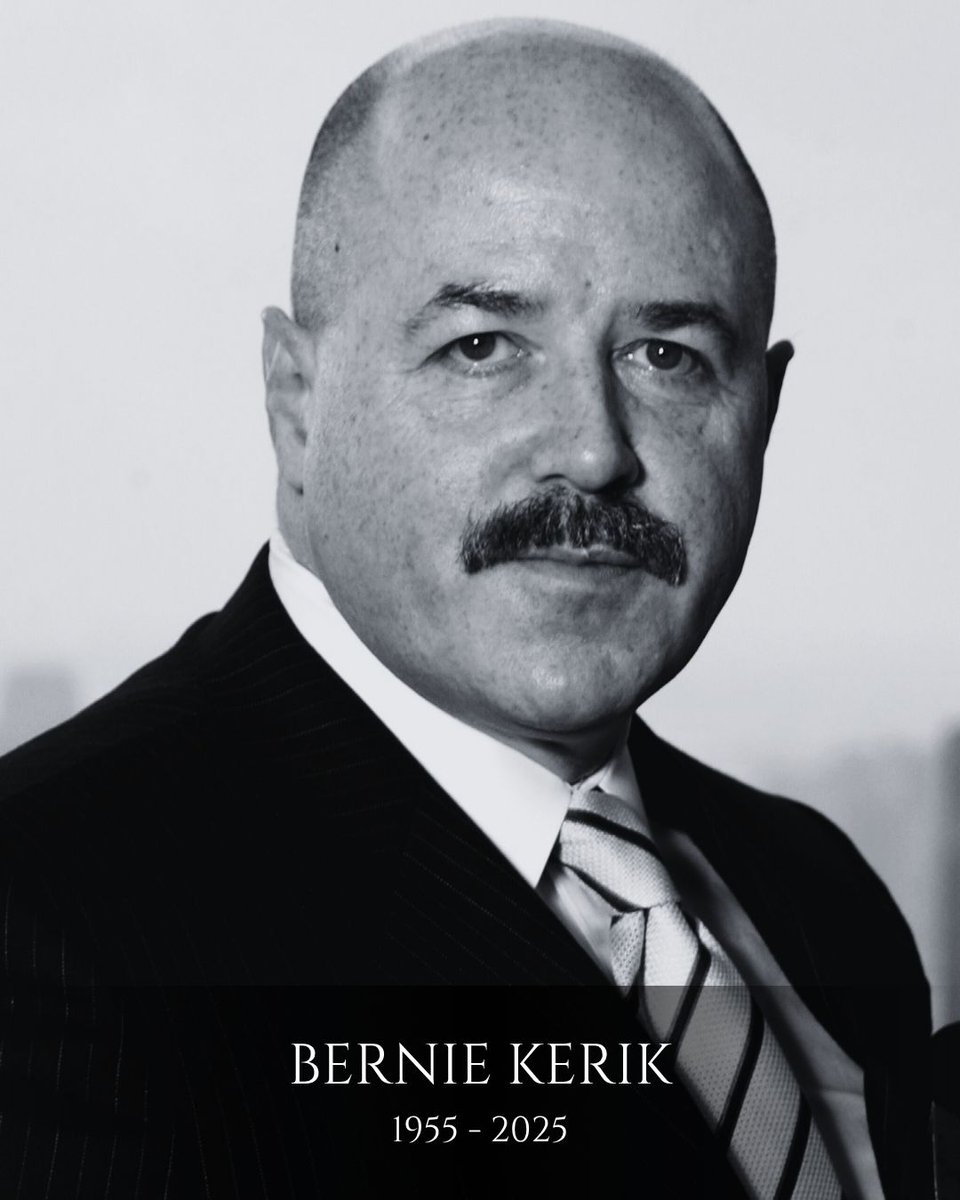Former NYC Police Commissioner Bernie Kerik Dies at 69! Was He a Hero or a Controversial Figure? The Debate Rages On!
Bernie Kerik: A Legacy Remembered
Bernie Kerik, the former New York City police commissioner known for his leadership during the aftermath of the September 11 attacks, has passed away at the age of 69. His death marks the end of a significant chapter in the history of New York City law enforcement and highlights the complex legacy he leaves behind.
A Hero in Times of Crisis
Kerik rose to prominence in the wake of the 9/11 terrorist attacks, where he played a crucial role in leading the New York Police Department (NYPD) as the city grappled with the unprecedented challenges posed by the attacks. His decisive actions during this critical time earned him accolades and recognition, and he was widely regarded as a hero who helped guide New York through its darkest hours.
Career Highlights
Before his tenure as police commissioner, Kerik had a distinguished career in law enforcement. He joined the NYPD in 1986 and quickly climbed the ranks due to his dedication, tactical skills, and commitment to public safety. In 2000, he was appointed as the police commissioner, a role that brought him to national prominence. His leadership during 9/11 solidified his reputation, and he was awarded numerous honors for his service.
Controversies and Challenges
Despite his heroism, Kerik’s career was not without controversy. In the years following his tenure as police commissioner, he faced legal challenges that resulted in a conviction for tax fraud and other charges. These controversies have led to discussions about the complexities of his legacy as a public figure. While he was celebrated for his leadership during a national crisis, the legal troubles that followed have complicated the public’s perception of his contributions to law enforcement.
- YOU MAY ALSO LIKE TO WATCH THIS TRENDING STORY ON YOUTUBE. Waverly Hills Hospital's Horror Story: The Most Haunted Room 502
A Lasting Impact on Law Enforcement
Kerik’s influence extended beyond his role in New York City. He became a key figure in discussions around national security and law enforcement practices post-9/11. His insights on policing and public safety were sought after by various organizations and government entities. Despite the controversies, many in law enforcement continue to recognize his contributions to policing strategies and emergency response protocols.
Personal Life
Bernie Kerik was born on September 4, 1955, in Newark, New Jersey. He grew up in a challenging environment that shaped his dedication to public service. Kerik served in the U.S. Army and later pursued a career in law enforcement. He is survived by his family, who have been a source of support throughout his tumultuous career.
Conclusion: Remembering Bernie Kerik
The passing of Bernie Kerik is a poignant reminder of the complexities surrounding public figures who navigate both extraordinary achievements and significant challenges. His legacy as a police commissioner who led New York City through one of its most difficult times will endure, even as the controversies of his later life continue to spark debate.
As the city reflects on Kerik’s contributions and the lessons learned from his career, it is essential to remember both the heroism displayed in the aftermath of 9/11 and the importance of accountability in public service. His life serves as a testament to the duality of human experience and the ongoing conversation about leadership, integrity, and the responsibilities that come with power.
Bernie Kerik’s story is one of triumph and tumult, illustrating the complexities of a life dedicated to public service. As we remember him, we honor both his bravery during a time of crisis and the lessons that can be learned from the challenges he faced in the years to come. His legacy will continue to spark dialogue on policing, public safety, and the role of leadership in times of national emergency.
In conclusion, as we reflect on the life and legacy of Bernie Kerik, it is crucial to recognize the impact he had on law enforcement and the city of New York. His efforts during a pivotal moment in history will not be forgotten, and his story serves as a reminder of the dedication required in public service, the importance of resilience in the face of adversity, and the need for accountability within the ranks of those who serve the public.

Bernie Kerik, the former New York City police commissioner who was hailed a hero after 9/11, has died at 69 years old. https://t.co/wCwUtS6kx9
Bernie Kerik, the former New York City police commissioner who was hailed a hero after 9/11, has died at 69 years old.
The world recently lost a significant figure in law enforcement and public service: Bernie Kerik. Known primarily as the former New York City police commissioner, he became a household name in the aftermath of the September 11 attacks in 2001. His leadership during one of the darkest times in American history earned him the respect and admiration of many. However, his life story is not just about his achievements; it’s also filled with controversies that shaped his legacy. Sadly, Bernie Kerik has died at 69 years old, leaving behind a complex narrative that few can forget.
Life and Career of Bernie Kerik
Bernie Kerik was born on August 4, 1955, in Newark, New Jersey. His upbringing in a tough neighborhood helped shape his character and drive. His background in law enforcement began when he joined the Newark Police Department, but it was his tenure at the New York City Police Department (NYPD) that marked the high point of his career. Appointed as the NYPD commissioner in 2000, he was thrust into the national spotlight just a year later when the Twin Towers fell.
As the city faced devastation, many turned to Kerik for leadership. His response to the 9/11 attacks was characterized by his quick decision-making and dedication to public safety. Under his watch, the NYPD implemented several strategies to enhance security and restore order in the city. Kerik’s efforts earned him accolades, and he was praised for his role in leading the police department during such a chaotic time.
Bernie Kerik’s Legacy After 9/11
The aftermath of 9/11 saw Kerik hailed as a hero. His ability to manage the crisis and coordinate with various agencies made him a symbol of resilience in New York City. Many remember his unwavering resolve; he was often seen at Ground Zero, working tirelessly alongside first responders. His leadership inspired not just New Yorkers, but people across the nation who were looking for hope amidst the turmoil.
However, Kerik’s legacy is not without its shadows. In the years following his time as police commissioner, he faced numerous legal challenges and controversies. His story took a dramatic turn when he was convicted in 2009 on multiple counts of corruption and tax fraud. This fall from grace was a stark contrast to the heroic image he had built during his time in office.
The Controversies Surrounding Bernie Kerik
While many remember Bernie Kerik as a hero, his life also serves as a cautionary tale about the complexities of public service and personal integrity. After his conviction, Kerik spent time in prison, which significantly tarnished his reputation. He later expressed remorse for his actions and sought to rebuild his life, but the stain of his past remained.
Despite the controversies, Kerik remained a vocal figure in discussions about law enforcement and public safety. He often spoke about the need for reform and the importance of accountability within police departments. His experiences, both good and bad, allowed him to provide unique insights into the challenges faced by law enforcement today.
Public Reactions to His Passing
The news of Bernie Kerik’s death has sparked a wide range of reactions. Many in the law enforcement community have mourned the loss of a leader who once stood tall in the face of adversity. Social media platforms buzzed with tributes from former colleagues, friends, and even those who were once critical of his actions. It’s a reminder of how complex and multifaceted a person’s legacy can be.
Some people have taken to platforms like Twitter to share stories of how Kerik influenced their lives or careers. They highlight not only his achievements but also the lessons learned from his mistakes. It’s a testament to the impact he had, both positive and negative, on those around him.
Reflecting on Bernie Kerik’s Impact
As we reflect on the life of Bernie Kerik, it’s essential to recognize the duality of his legacy. He was a leader who rose to prominence during a national crisis, embodying the resilience and strength of New Yorkers. Yet, he also serves as a reminder of the importance of integrity in public service. His journey from hero to a figure of controversy illustrates the complexities of human nature and the challenges that come with leadership.
Kerik’s story prompts us to think critically about the qualities we value in our leaders. It raises questions about accountability, redemption, and the ways in which our actions define us. As we remember Bernie Kerik, we can honor his contributions while also acknowledging the lessons learned from his life.
The Future of Law Enforcement and Leadership
In the wake of Bernie Kerik’s passing, discussions surrounding law enforcement are more relevant than ever. His experiences highlight the need for reform and the importance of maintaining public trust. As we look to the future, it’s crucial for leaders in law enforcement to learn from both the successes and failures of those who came before them.
Kerik’s life serves as a reminder that leadership is not just about making decisions during crises but also about upholding ethical standards. The community’s reaction to his life and legacy may influence how future leaders approach their roles in law enforcement.
In Memory of Bernie Kerik
As we bid farewell to Bernie Kerik, we must remember him not just for his role as the former New York City police commissioner who was hailed a hero after 9/11, but also as a complex individual who experienced the highs and lows of public service. His passing at 69 years old marks the end of an era, but his story will continue to resonate in discussions about law enforcement, leadership, and the human capacity for both greatness and failure.
In the end, Kerik’s life reminds us that every individual has the power to influence others profoundly. Whether through acts of heroism or mistakes that lead to difficult lessons, each life is a narrative that contributes to the larger story of society. As we reflect on his legacy, we are reminded of the importance of integrity, accountability, and the enduring human spirit.

